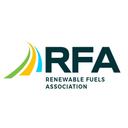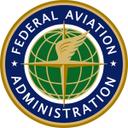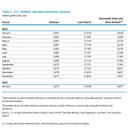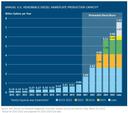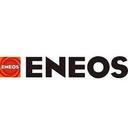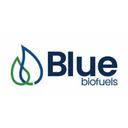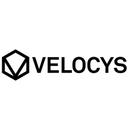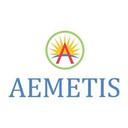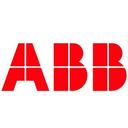Ryanair on March 28 announced that it has purchased 1,000 metric tons of sustainable aviation fuel (SAF) from Shell. That volume of SAF is enough to fuel over 200 flights from Stansted to Madrid.
Phillips 66 on April 1 announced that its Rodeo refinery in San Francisco has commenced commercial production of renewable diesel. The facility is expected to begin producing SAF components during the second quarter of this year.
The RFA is urging federal officials to use a 30-year time frame to account for LUC emissions as they work to complete the upcoming 40BSAF-GREET model, which will be used to calculate emissions reductions for the SAF tax credit.
The U.S. Department of Transportation’s Federal Aviation Administration on April 1 opened a $269 million funding opportunity under its Airport Improvement Program. SAF infrastructure projects are among those eligible for the funding.
U.S. biofuels operable production capacity was unchanged in January, according to data released by the U.S. Energy Information Administration on March 29. Total feedstock consumption was down when compared to the previous month.
Neste has started supplying sustainable aviation fuel (SAF) to Emirates at Amsterdam Airport Schiphol, expanding the partnership the two companies announced in October last year.
The USDA’s National Agricultural Statistics Service is predicting a 3% increase in soybean planted area for 2024, according to the agency’s annual Prospective Plantings report, which was released March 28.
Southwest Airlines Co. has acquired SAFFiRE Renewables LLC as part of the investment portfolio of its wholly owned subsidiary Southwest Airlines Renewable Ventures LLC. SAFFiRE expects to produce cellulosic ethanol for conversion into SAF.
TotalEnergies and China Petroleum and Chemical Corp. (SINOPEC) have signed a heads of agreement (HoA) to jointly develop a sustainable aviation fuel (SAF) production unit at a SINOPEC's refinery in China.
CoBank is predicting U.S. soybean crush capacity will expand 23% over the next three years. In a report released March 21, the company discusses the risk that this rapidly expanding capacity could exceed renewable diesel growth.
Japan-based petroleum company ENEOS Corp. on March 22 announced that a coalition of Japanese and South Korean companies have entered an MOU to cooperate on feedstock for a SAF project ENOES is developing.
Legislation introduced in the Illinois Senate aims to create a technology-neutral clean fuel standard (CFS) that would reduce the carbon intensity of transportation fuels by 20% by 2038.
Blue Biofuels Inc. announced it has successfully producing its first batch of cellulosic ethanol, utilizing the cellulosic sugars created from biomass on its CTS pilot line. The company has also embarked on a funding process for SAF capacity with Vertimass.
Air New Zealand has launched a global open invitation to innovators and start-ups in the sustainable aviation fuel (SAF) sector to become a supply partner to the airline.
U.K.-based SAF technology developer Velocys in February announced a new consortium of growth investors have infused the company with $40 million of growth capital as part of take-private transaction completed in January.
Jet Zero Australia, Trovio Partner to establish the Australian framework for a ‘Book and Claim’ registry for SAF and renewable diesel
Jet Zero Australia Pty Ltd and Trovio Operating Pty Ltd announced that they have entered a strategic partnership to design and develop the ‘Book and Claim’ Registry for Australian sustainable aviation fuel (SAF) and renewable diesel (RD).
Energy crops represent a key part of the nation’s biomass production portfolio.
Accelerating the adoption of SAF and putting the aviation industry on track for net-zero carbon emissions by 2050 will require a significant ramp in global SAF production.
Refining a Cleaner Future
Honeywell discusses its novel Ecofining technology and the company’s role in the future of clean aviation fuels.
BDI-BioEnergy International began engineering waste oil-processing biodiesel plants in the mid-1990s.
The sustainable aviation fuel market is poised for takeoff, but overnight growth may be difficult without policy support that renewable diesel enjoyed in its early years.
IAE International Aero Engines AG (IAE) announced it has successfully tested the V2500 engine with 100% sustainable aviation fuel (SAF) at MTU Maintenance Hannover, Germany.
Researchers at the National Renewable Energy Laboratory Computational Science Center are hard at work enabling the conversion of biomass to fuels and products at industrial scale.
How and when can the aviation industry use 100% synthetic aviation turbine fuel that also delivers the sustainability society expects from the sector?
Spotlight | Clariant Adsorbents Americas - Unlocking Feedstock Potential with Highly Efficient Adsorbents
March 22, 2024
By enabling access to an ever-wider range of sustainable feedstocks, advanced purification technology minimizes the risk of a potential feedstock crunch, while the world watches with anticipation as industries and policymakers navigate the economics and innovation in the promising and evolving landscape of biofuels.
The U.S. EPA on March 21 released updated RIN data, reporting that nearly 2.02 billion RINs were generated under the RFS in February, up from 1.91 billion generated the previous month and 1.76 billion generated in February of last year.
Aemetis approved by USCIS for $200 million of EB-5 investment in biogas, SAF and carbon sequestration projects
Aemetis Inc. has announced approval by USCIS for $200 million of EB-5 program investment for the Riverbank SAF production plant, the dairy RNG project, the carbon sequestration project, and energy efficiency upgrades to the Keyes ethanol plant.
A multi-state coalition of biofuel leaders and farm advocates called on President Biden’s Treasury Department to swiftly resolve any questions standing in the way of efforts to scale up U.S. production of SAF.
ABB has signed an agreement with Cap Clean Energy to collaborate on SAF production sites in Canada. As part of the MOU, ABB will explore how its automation, electrification and digital technology can optimize the biofuel facilities.
Advertisement



